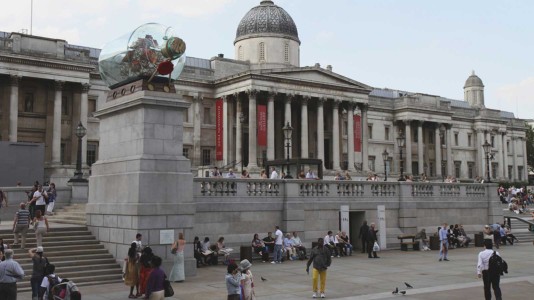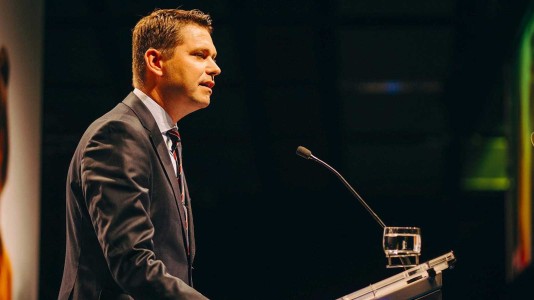The Catholic Church in Germany has been facing a series of crises in recent years, including a shortage of priests and an ongoing sexual abuse scandal, but the German Church is choosing to focus on the Alternative for Germany (AfD) party, especially if members of the AfD happen to be participating in Catholic life.
The chairman of the German Bishops’ Conference (DBK), Georg Bätzing, who also serves as bishop of Limburg, said that membership in the Alternative for Germany (AfD) party is not compatible with volunteer work or holding office in the Catholic Church.
He said that the Church should focus on supporting freedom, and democracy, and on maintaining an openness to foreigners.
Bätzing also said he backed the protests against the AfD and called on German bishops to send a “unanimous signal against extremism” at the upcoming DBK conference in Augsburg, where the future of democracy and the Catholic Church will be discussed among bishops.
“Unfortunately, the danger of ethnic-nationalist and right-wing extremist thinking also exists among Catholics,” he said.
Germany’s Catholic Church is increasingly getting political, with bishops from Berlin, Erfurt, Hamburg, Magdeburg, Dresden, and Görlitz penning a letter warning against the AfD coming to power, and comparing the party to neo-Nazi party Die Heimat.
Schism in the Church?
Besides the loss of members and sexual abuse accusations, the Catholic Church in Germany is increasingly facing pressure from the Vatican over proposed liberalization changes, which would allow priests to marry, allow women to be priests, and permit LGBT marriage ceremonies.
The DBK had prepared a vote on the Synodal Council, which would have seen bishops vote on progressive proposals, which could have seen a schism in the Catholic Church. However, this vote has since been stricken from the agenda after the Vatican rejected the plan in an official letter.
“Such an organ is not provided for by the applicable canon law and therefore a decision by the DBK in this respect would be invalid – with the corresponding legal consequences,” wrote Cardinals Fernandez, Prevost and Parolin on Saturday in their letter.
“The approval of the statutes of the Synodal Committee would therefore be contrary to the instruction of the Holy See, which was given on a special mandate by the Holy Father, and would once again present him with a fait accompli,” warned the cardinals.
However, the matter is not closed, and the rebellious German bishops are expected to hold the vote at a potential future date, setting the stage for monumental changes in the Catholic Church and forcing Pope Francis to take action against the Germans.
The German Catholic Church is receiving stark warnings not only from the Vatican but also bishops and higher-ranking cardinals elsewhere in Europe.
Austrian Cardinal Christoph Schönborn warned the Germans that their efforts could lead to a split in the Catholic Church.
“The German bishops must seriously ask themselves whether they really want to leave the community with and under the pope or whether they rather want to accept it loyally,” he said to Catholic magazine Communio.
Christianity is failing in Germany
The Catholic Church in Germany is not the only Christian branch that has gone “woke.” Nearly all Christian organizations now feature a variety of pro-migration and anti-conservative stances, and nearly all are hemorrhaging members. Undoubtedly, there are some Christians who are turned off by the extreme pro-migration and increasingly progressive views held by these institutions, especially when Christianity has been traditionally seen as a refuge for conservatives.
It is also important to note that there is an entire area of the country where Christianity holds little sway already. The east of Germany, which was once ruled by communists, is remarkably less Christian than the former West Germany. This may in part account for the east’s willingness to back the AfD party, as the people there are not beholden to the anti-AfD sentiment being vigorously promoted in various churches across the west of the country.
As this map from 2011 shows, the east has by and large abandoned religion, with the vast majority listing their religion as “none” or “other,” which includes the non-religious.
As Pew notes in a study comparing both East and West Germans, there are extreme differences between the two parts of the country: “Six-in-ten adults in former West Germany say religion is very or somewhat important in their lives, whereas an identical share of those in former East Germany say religion is not too or not at all important. This includes 45 percent of those in the former East who say religion is not at all important in their lives.”
East Germans also have stronger anti-immigration stances, and with Christian organizers pushing for radical open borders and an easier path to citizenship, many easterners see this messaging as failing to resonate or openly against their interests.





